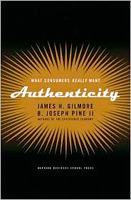
Take the leap: Overcoming uncertainty with the principles of persuasion
Fears of recession, turbulent markets and an overload of information about the situation have created a sense of uncertainty about the economy going forward, leaving many people unsure how to react. Such uncertainty is especially problematic for a stagnant economy because it often leaves people frozen — too scared to spend and unwilling to invest. Robert Cialdini, a professor of marketing and psychology at Arizona State University and longtime expert in the power of persuasion, says that three specific principles of persuasion — scarcity, consensus, and authority — can be used to influence people to overcome their fears.





